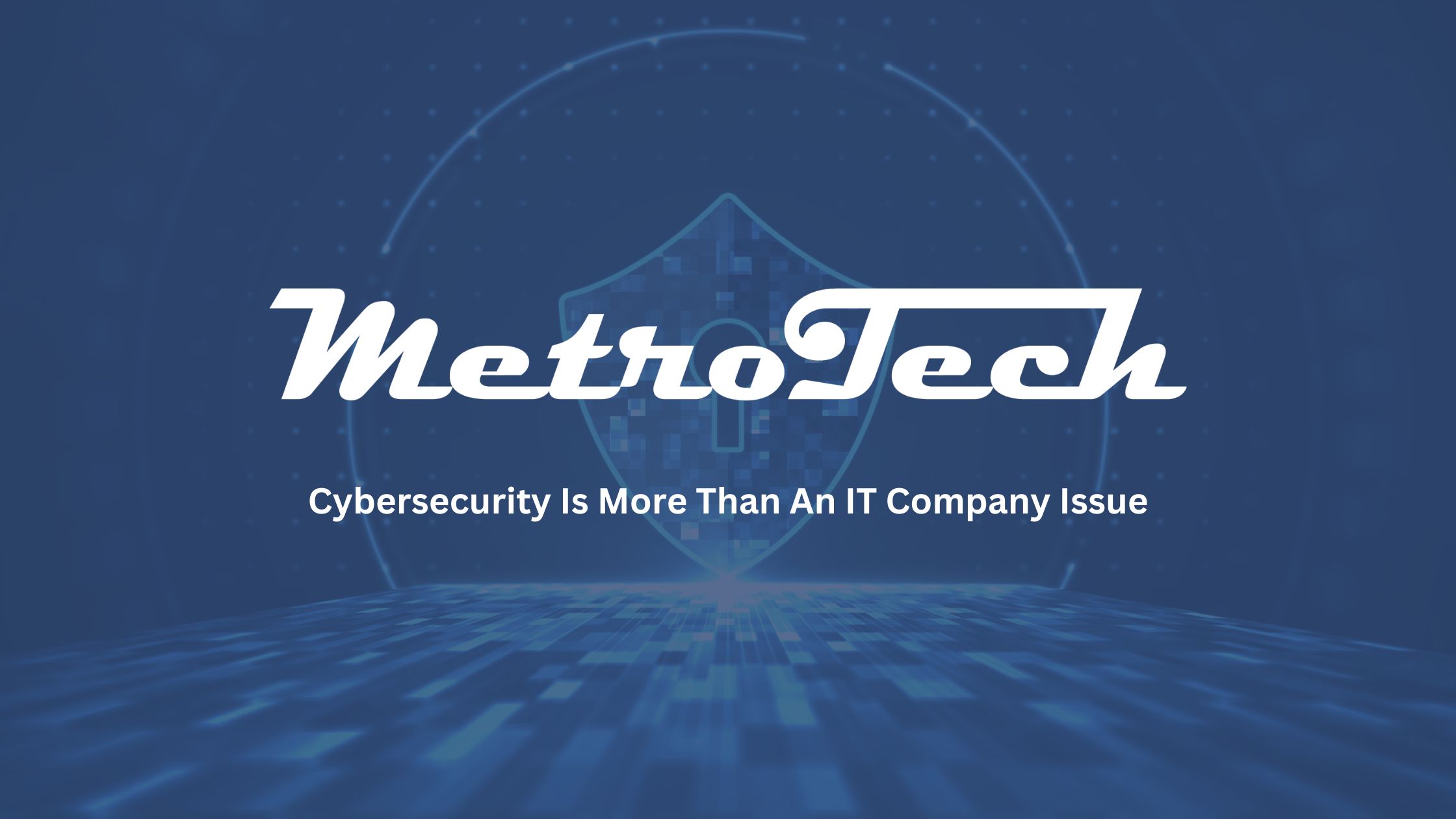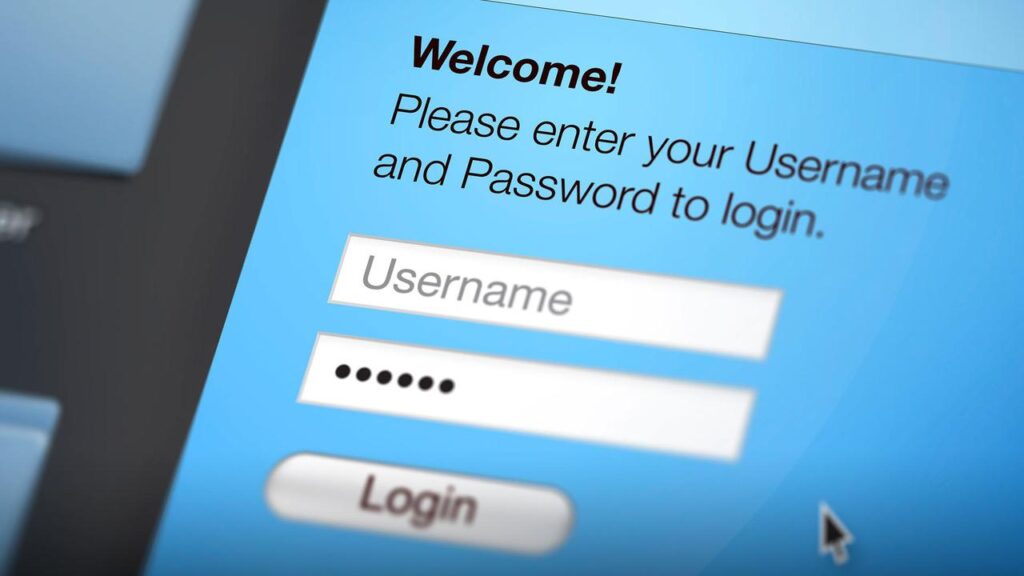How Cybersecurity Affects You And Your Business
Every year we hear multiple reports about how cybercriminals have infiltrated a business, stolen millions of dollars or identities. Online crime is a massive disruption to the global economy and in many cases forces many small businesses to the point of closing their doors. In reality, much of the cybercrime that occurs is the result of internal human mistakes. However, despite the statistics, many still believe that cybersecurity is purely an IT problem, when it is really a community issue.
Employees Are Apathetic Towards Cybersecurity Issues
According to a Tessian research study, 30% of employees believe computer security for the company they work for is not their responsibility. In fact, many stated that if there was a computer security problem, they wouldn’t even bother reporting it. When asked why, nearly 25% said they simply don’t care enough about cybersecurity to mention it.
Corporate Leadership Isn’t Much Better
Similarly, many managed IT services companies report that those in corporate leadership positions mimic their employees on cybersecurity issues. In fact, most c-level personnel stated they would sacrifice computer security for more productivity out of their staff. In addition, many have even felt pressure from board members to downplay the risks associated with cybercrime. Furthermore, it was determined that executives are not even interested in knowing anything about cybersecurity measures as they feel it is a technology issue requiring too much specialized knowledge.
Cybersecurity Is Everybody’s Problem
Cybercrime costs businesses millions of dollars in revenue and time each year. Given the repetitive statistics, it is clear that cybersecurity is the responsibility of everyone at any company. Whether you are in shipping, sales or the boardroom, a cyber attack can penetrate a company at any level and do irreversible damage.
For example, consider the case of Lincoln College in Illinois. The college was taken over by a ransomware attack that was so catastrophic, it shut the 157 year old institution down leaving over 1,000 people without jobs.
To combat the growing threat of cyber attacks, companies must adopt a company-wide cybersecurity culture. However, this requires the full cooperation of all staff, employees, corporate leaders and everyone in between. Below are some practices that can help get everyone on the same page.
First And Foremost, The Best Cybersecurity Practices Start From The Top Down
The leadership is the role model at any company. It is important for the leadership to work closely with their technology team in order to give computer security the attention it deserves. When working with a technology company, such as MetroTech, you’ll want to be sure the information presented avoids the use of technical jargon and provides a clear, easy to understand pathway that achieves a specific objective that staff members can buy into.
- Management team must be kept updated on current potential threats
- Conduct regular meeting to discuss current cybersecurity practices in each respective department and any corresponding vulnerabilities
- It is important to outline current emergency response plans, as well as plans for mitigating any attacks and data protection strategies
- Lastly, make sure your managed IT services provider is capable of demonstrating the value of bolstering cybersecurity measures.

Increasing Awareness
In almost all cases where a cyber attack has occurred, the compromise was the result of an employee clicking a link in an email they shouldn’t have or where they have mishandled sensitive information. Employees may also cut corners on workplace procedures in order to make their job easier. Consequently, these actions can open a company up to an attack. Creating security plans is one way to correct these types of behaviors. But, keep these guidelines in mind.
Keep It Simple
Employees and users are not computer security experts, nor do they want to be. It is important to provide training materials that are easy to understand. Also, ensure that any security controls used do not make an employee’s job more difficult.
Consistency Is Key
Research suggests that employees that receive monthly computer security training are more qualified at spotting malicious phishing scams and social engineering schemes.
Make Your Programs Interesting
Studies show that when training is actually interesting and fun, an employee is 13 times more likely to improve their computer security habits.
Data Breaches and the Importance of Network Security
In today’s interconnected world, data breaches have become a significant threat to both individuals and organizations. These breaches can result in the loss of sensitive data, such as personally identifiable information, financial records, and confidential business information, leading to devastating consequences.
Protecting Sensitive Data on Mobile Devices
With the increasing use of mobile devices in business operations, securing these devices is paramount. Mobile devices are vulnerable to various security threats, including malicious software and phishing attacks, making them potential entry points for unauthorized access to sensitive data. Implementing strong security measures, such as encryption and secure operating systems, is essential to protect information securely.
The Role of Network Security in Preventing DDoS Attacks
Distributed Denial of Service (DDoS) attacks aim to overwhelm network resources, rendering them unavailable to users. These attacks pose significant security risks, disrupting operations and potentially leading to data breaches. Effective network security practices, including regular monitoring and the deployment of security solutions, can mitigate the impact of DDoS attacks.
Implementing Strong Passwords and Multi-Factor Authentication
A strong password is the first line of defense against unauthorized access to sensitive information. However, relying solely on passwords is no longer sufficient. Multi-factor authentication (MFA) adds an additional layer of security by requiring users to provide two or more verification factors to gain access to their accounts, significantly reducing the risk of security breaches.
Safeguarding Against Phishing Attacks and Malicious Software
Phishing attacks are deceptive attempts to steal personal information or login credentials, often leading to unauthorized access to sensitive data. Similarly, malicious software can infiltrate operating systems, compromising data integrity and privacy. Educating users on recognizing and avoiding phishing attempts and ensuring that all devices are protected with up-to-date antivirus solutions are critical steps in safeguarding against these threats.
What does this all mean?
To sum up, the danger environment is perpetually changing, with data leaks, phishing attempts, and DDoS assaults posing substantial threats to the safety of confidential data. Companies need to embrace a holistic security approach that encompasses safeguarding mobile devices, fortifying network resources, mandating robust password rules, deploying multi-factor authentication, and enlightening users about possible threats. By adopting preventive actions, enterprises can shield their confidential data and efficiently reduce security hazards.
Metrotech’s Commitment to our Clients Cybersecurity Needs
Metrotech, with its deep commitment to client security and operational continuity, recently demonstrated its expertise in handling cybersecurity challenges through a particularly notable case. A small legal firm, specializing in estate planning and located in Clearwater, Florida, became the target of a sophisticated phishing attack. The attack was designed to infiltrate their system to steal sensitive client data, including personally identifiable information (PII) and confidential case files.
Upon detecting unusual network activity, the firm immediately reached out to Metrotech for assistance. The Metrotech team, leveraging their advanced diagnostic tools and cybersecurity expertise, quickly identified the breach’s source as a phishing email that had deceived one of the firm’s employees into providing access credentials.
Understanding the urgency of securing the firm’s network and protecting its sensitive data, Metrotech implemented a multi-faceted response strategy:
- Immediate Isolation: The affected systems were immediately isolated to prevent further spread of the malicious software.
- Password Reset and MFA Implementation: Metrotech enforced a company-wide password reset and implemented multi-factor authentication (MFA) for all user accounts, adding an extra layer of security to prevent future breaches.
- Malware Removal and System Restoration: Using advanced malware removal tools, Metrotech eradicated the malicious software from the firm’s network. They then worked diligently to restore the compromised data from secure backups, ensuring minimal disruption to the firm’s operations.
- Cybersecurity Training: Recognizing that human error had facilitated the breach, Metrotech conducted an in-depth cybersecurity training session for all staff members. This training focused on identifying and avoiding phishing attempts and other common cyber threats.
- Ongoing Monitoring and Support: To safeguard against future attacks, Metrotech implemented enhanced network security measures, including the deployment of next-generation firewalls and continuous network monitoring.
Thanks to Metrotech’s swift and comprehensive response, the legal firm was able to resume its operations with enhanced security measures in place, ensuring the protection of its sensitive data. This incident not only highlighted the importance of robust cybersecurity practices but also Metrotech’s role as a trusted partner in navigating the complex landscape of cyber threats.
Choose MetroTech To Implement Your Company’s Cybersecurity Plan
There is no cookie cutter set of instructions for building a solid computer security culture. Every organization is different. Plus, the process takes ongoing evolution and frequent education. If you are not sure where to start, MetroTech can help. We’ve been protecting Tampa Bay businesses for over 18 years. We can work with you and your IT team to adopt proper cybersecurity practices to keep your business and most importantly, your data, safe. Call us today at (727) 230-0332 or contact us on our website here. We look forward to working with you.




